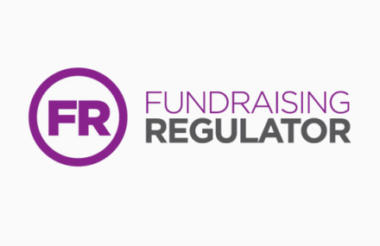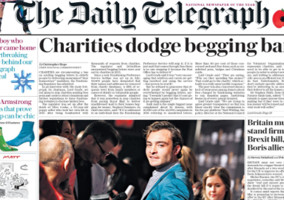The Fundraising Regulator has published two new anonymised case studies based on complaints made against charity fundraising by the public.
The two new case studies were published by the Fundraising Regulator on its website yesterday. The case studies are based on separate complaints made by a ‘Mr L’ and a ‘Mr M’ about different, unnamed charities. The first new case study deals with a complaint about the legitimacy of a volunteer fundraiser, while the second deals with a complaint made about “disturbing” fundraising material.
These two new anonymised case studies represent the ninth and tenth such reports published by the Fundraising Regulator since it launched in June 2016.
One of the complaints has been upheld by the Fundraising Regulator while one was only partly upheld.
Speaking at the Westminster Social Policy Forum in London last month, Stephen Dunmore, chief executive of the Fundraising Regulator, said the watchdog would only publish the names of charities involved in complaints “if they don’t accept our recommendations”.
The complaints
The two new case studies are called numbers 9 and 10. Case study number 9 deals with a complaint made by a ‘Mr L’ who told the Fundraising Regulator that “a volunteer fundraiser visited his property saying they were collecting sponsorship on behalf of a charity.
"He said that he had concerns about the legitimacy of the fundraiser when he was shown the ‘letter of authority’ and contacted the charity who were unable to verify the identity of the volunteer fundraiser.”
The regulator found that the charity in question “were not sufficiently ‘open’ with Mr L when responding to his complaint and this caused confusion. We also found that the processes in place to allow members of the public to verify the legitimacy of fundraisers volunteering for the charity needed to improve”.
The complaint was upheld by the regulator, who made a number of recommendations for the charity, including: “reconsider updating its policy to make those provided with a letter of authority aware that their details may be used to verify that they are fundraising in aid of the charity”; “consider how it would deal with these queries should they be made out of office hours”; and to issue the complainant with an apology.
The regulator said the charity accepted its findings and recommendations.
Case study 10 deals with a complaint from a ‘Mr M’, who told the regulator that “messaging on the outer cover of a mailing that he received from a charity was disturbing and could potentially be read by his young daughter.”
‘Mr M’ said he’d asked the charity to “remove his details from its database but the charity continued to contact him”.
The regulator found that the charity “failed to action multiple requests from Mr M to remove his details from its mailing list after he withdrew his consent. We also found that, despite receiving an assurance that his request had been actioned, he continued to receive emails from the charity two months later.”
Despite this, the regulator said that “although the charity did not handle Mr M’s complaint appropriately” it did “act on the learning identified by the complaint”. The regulator also said it did not believe the messaging to be “indecent or grossly offensive nor was it intended to cause distress or anxiety”.
As a result, the regulator only partly upheld Mr M’s complaint. It said the charity had “already implemented significant changes to its processes directly” as a result of the complaint and, as the complainant “did not wish to receive an apology” from the charity, it made no further recommendations.
Anonymised case studies part of ‘ongoing commitment to help the sector learn’
In a statement given to Civil Society News, a spokesman for the regulator said its anonymised case studies were “part of our ongoing commitment to help the sector learn from past cases and in the majority of cases that we publish, we would seek to do so anonymously.”
It also said the two new case studies help “highlight some of the issues we have investigated and set out the findings we made in those cases and any recommendations we thought were necessary to improve the fundraising practices of the organisations concerned.”
It said that between its launch in July 2016 and the end of March 2017, presumably when the complaints that make up the new case studies were made, the regulator received “over 700 complaints itself”. It has received a further 600 complaints since March.
Related Articles












